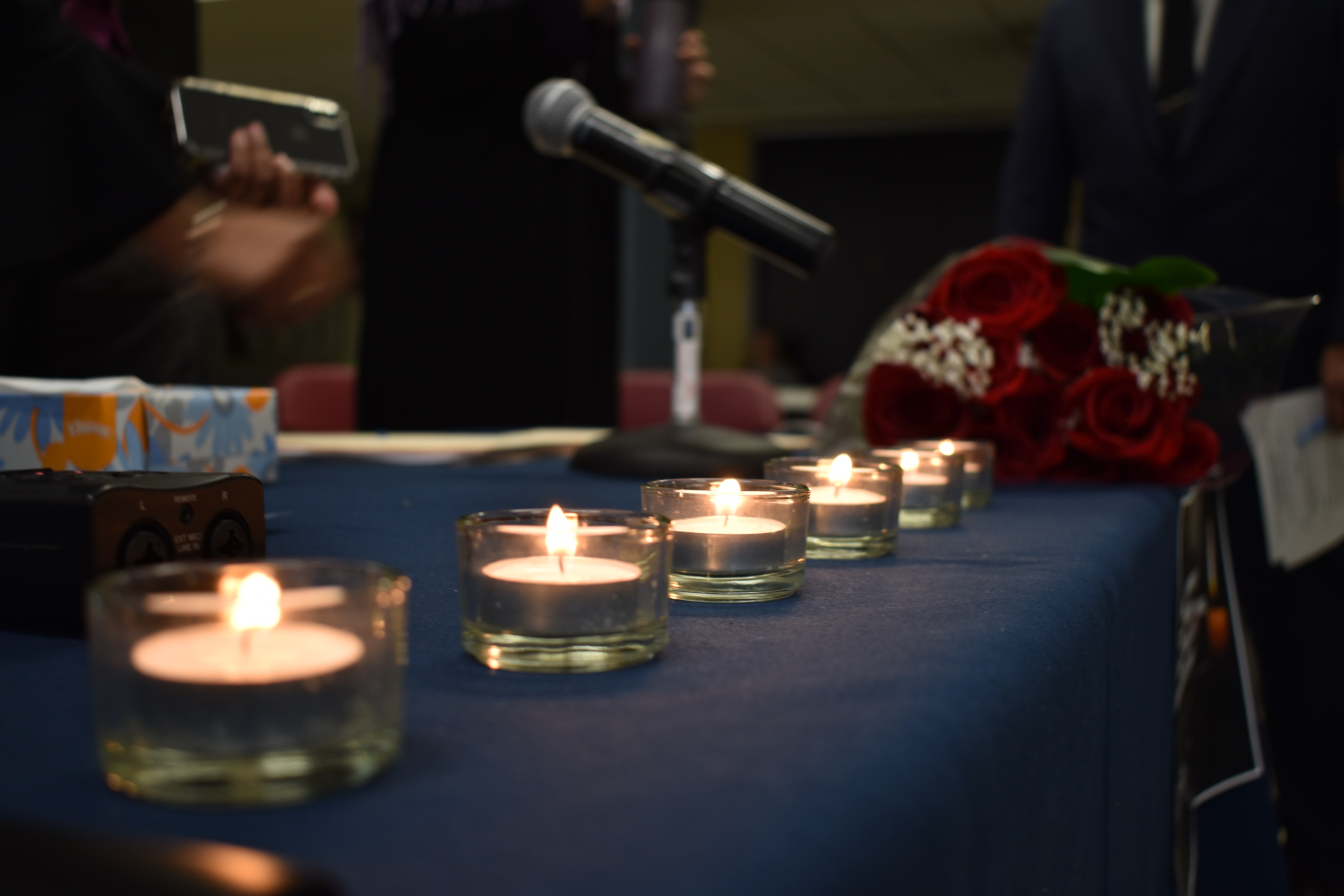Interfaith commemoration for the victims of the Quebec City mosque shooting
“Six muslim men were killed and 19 others were injured. It was the single most deadliest Islamophobic attack in Canadian history,” said Sarah Abou-Bakr, Concordia student and a staff worker for the National Council of Canadian Muslims (NCCM). On Jan. 29, Abou-Bakr led the interfaith commemoration of the Quebec City mosque shooting that happened on the event’s two year anniversary.
The commemoration was organized by the Concordia Student Union’s (CSU) Legal Clinic, NCCM and the Center for Research-Action on Race Relations (CRARR), and took place in the Hall building.
“First and foremost we stand in solidarity with the families of these six men whose lives were taken from them, as well as with those who were injured during or witnessed this attack,” Abou-Bakr said. “Our thoughts and prayers are with you as you continue to heal.”
https://youtu.be/xR_05Ea_JQk
Elder Vicky Boldo from the Aboriginal Student Resource Centre dedicated a women’s healing song to those affected by the shooting, following Abou-Bakr’s speech.
Camille Thompson, external affairs and mobilization coordinator at the CSU, said that as someone from Quebec City, she was ashamed that such violence took place in her hometown. Thompson hopes the government will address the city’s systemic Islamophobia to work toward a world without hate.
After a reading from the Quran, Rev. Ellie Hummel, coordinator of Concordia’s Multi-faith and Spirituality Centre took the microphone. “How long, oh god, must you people suffer in vain?” Hummel asked. “How many more commemorations do we need to attend, for mosque shootings, or synagogue shootings, or shootings of black churches, or violence based on race or gender, or religion, or whatever else? How many more?”
The 30 some crowd members were in awe throughout the ceremony; even students lining up to eat at Concordia’s People’s Potato listened intently.
“Just three months ago we were here […] to remember those who were killed in a synagogue in the United States and unfortunately, this [hate] has continued to grow,” said Imam Salam Elmenyawi, president of the Conseil musulman de Montréal. He spoke about the importance of words: “Good words matter,” and “Bad words matter,” he said.
Rabbi Yisroel Bernath, associate Chaplain at Concordia, said that as a community, it’s not simply about commemorating. “One of the great ethical questions of our time is a question that’s been asked over and over again: ‘Is darkness a creation of its own? Or is it the absence of light?’” Bernath asked. “What’s beautiful about light is that if you take one light and you light another, nothing gets extinguished from yourself. You only add more light into the world.”
Bernath believes that darkness is the absence of light. “Today is not just about remembering, but to live it and to say ‘what am I going to do today, to add my light into the world,’” he said.
“It’s so ironic that two days after the international remembrance day we have to hold this event to think about one of the most violent, hateful Islamophobic crimes in this province,” said Fo Niemi, executive director of CRARR.
Niemi also mentioned how just the day before, the Quebec government asked school boards in Montreal how many of their teachers wear religious symbols or garments. The Globe and Mail reported that school boards received a call from a deputy education minister asking them for those numbers. They replied they do not have such records.
“We need a government that will be on our side,” said Niemi. “For our rights, for our fundamental human rights, for our fundamental human values, and not a government that tolerates discrimination, that promotes discrimination or that legislates discrimination.”
The Globe and Mail also reported that asking how many teachers wear religious items violates provincial and federal laws against religious discrimination, according to legal advice given to representatives of the school boards.
Niemi related the commemoration of the mosque shooting to the current political climate in Quebec. “After today, with all the tears, with all the emotions, I sincerely hope that the CSU, all of you, and all of the student associations on this campus and beyond will come together to overcome the kind of things that often keep us apart, so that we can come together and say it loudly to governments,” Niemi said. “We must create and promote a legacy of peace, and equality, and respect of diversity, because this is what the declaration of human rights is all about.”
At the end of the ceremony, Gospel Singer Amanda Ben sang, “Will the circle be unbroken,” and speakers went up one by one to light a candle for each of the six men who were killed.
According to CBC, Aymen Derbali, a survivor who was left paralyzed after being shot seven times, and Azzedine Soufiane, a victim who managed to take down the gunman for several seconds, were both awarded medals of honour yesterday, for their acts of courage.
Photos by Mia Anhoury.
